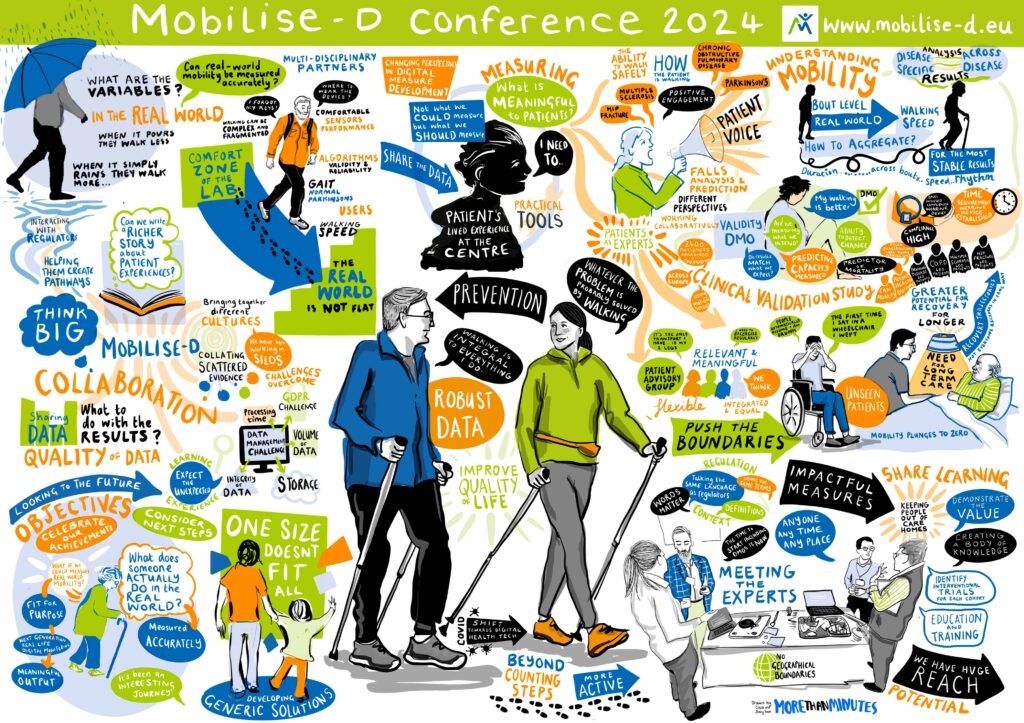
Mobilise-D was a 5-year, IMI-funded project that produced validated and accepted digital mobility outcomes to monitor the daily life gait of people with various mobility problems, aiming to improve follow-up and personalized care.
Mobilise-D IMI 2019-2024
Learn more about the Mobilise-D IMI. The project goal was to provide a robust, validated set of algorithms to measure digital mobility outcomes and inform drug and technology development, clinical practice, precision medicine, regulatory bodies and stakeholders about the impact and importance of walking.
Mobilise-D Network
The Mobilise-D Network fosters and develops a research environment and innovation in mobility measurement. Our mission is to enhance research capacity and capabilities, driving groundbreaking advancements that benefit patients, healthcare professionals, and the public.
SUSTAIN Mobilise-D
SUSTAIN Mobilise-D is a follow-on consortium created to maximize the impact and to advance the achievements of Mobilise-D IMI. The scope of work includes managing the sharing of the validated algorithms and data from the Technical Validation Study and Clinical Validation Study and promoting best practices related to collecting, interpreting, and advancing the use of Mobilise-D digital mobility outcomes (DMOs).



